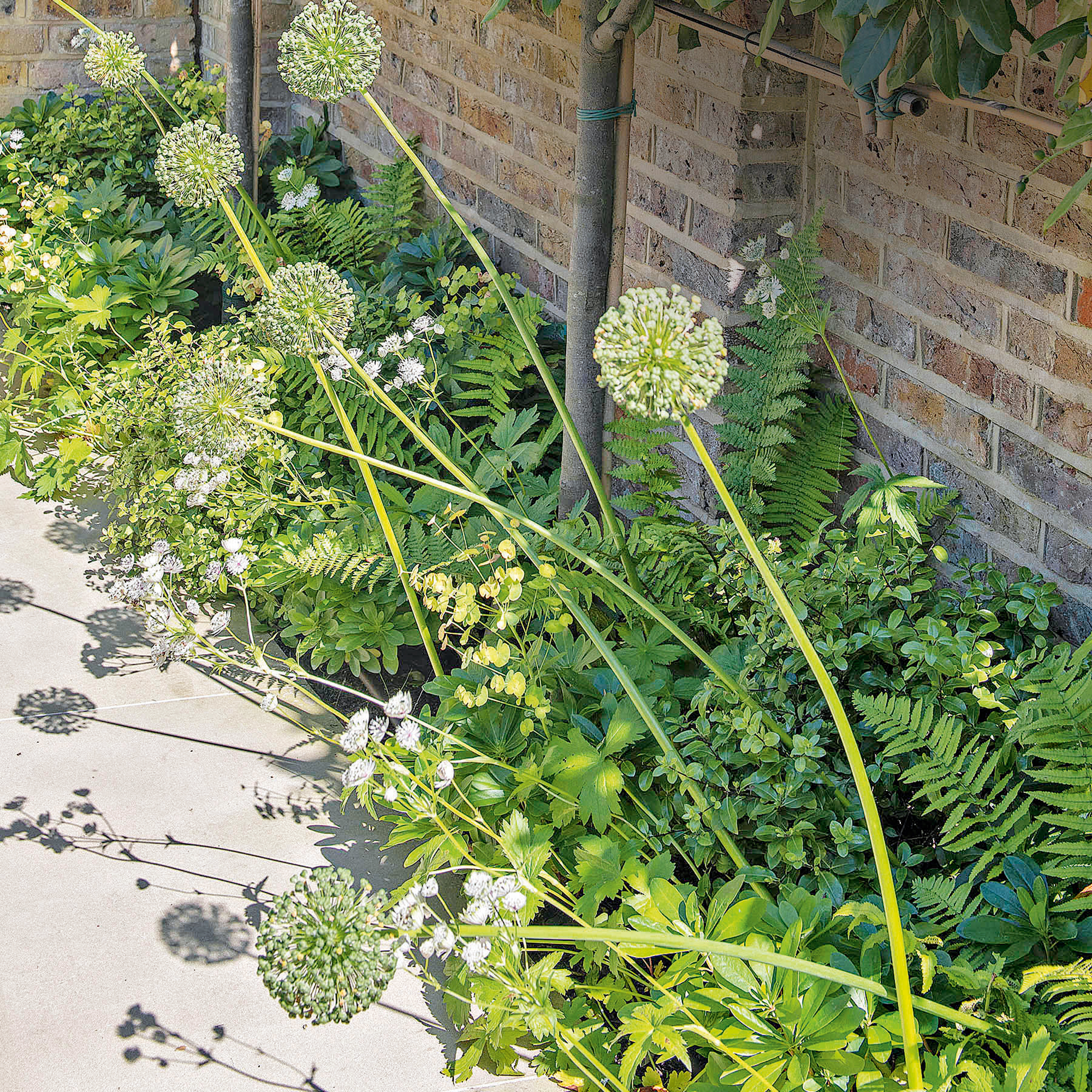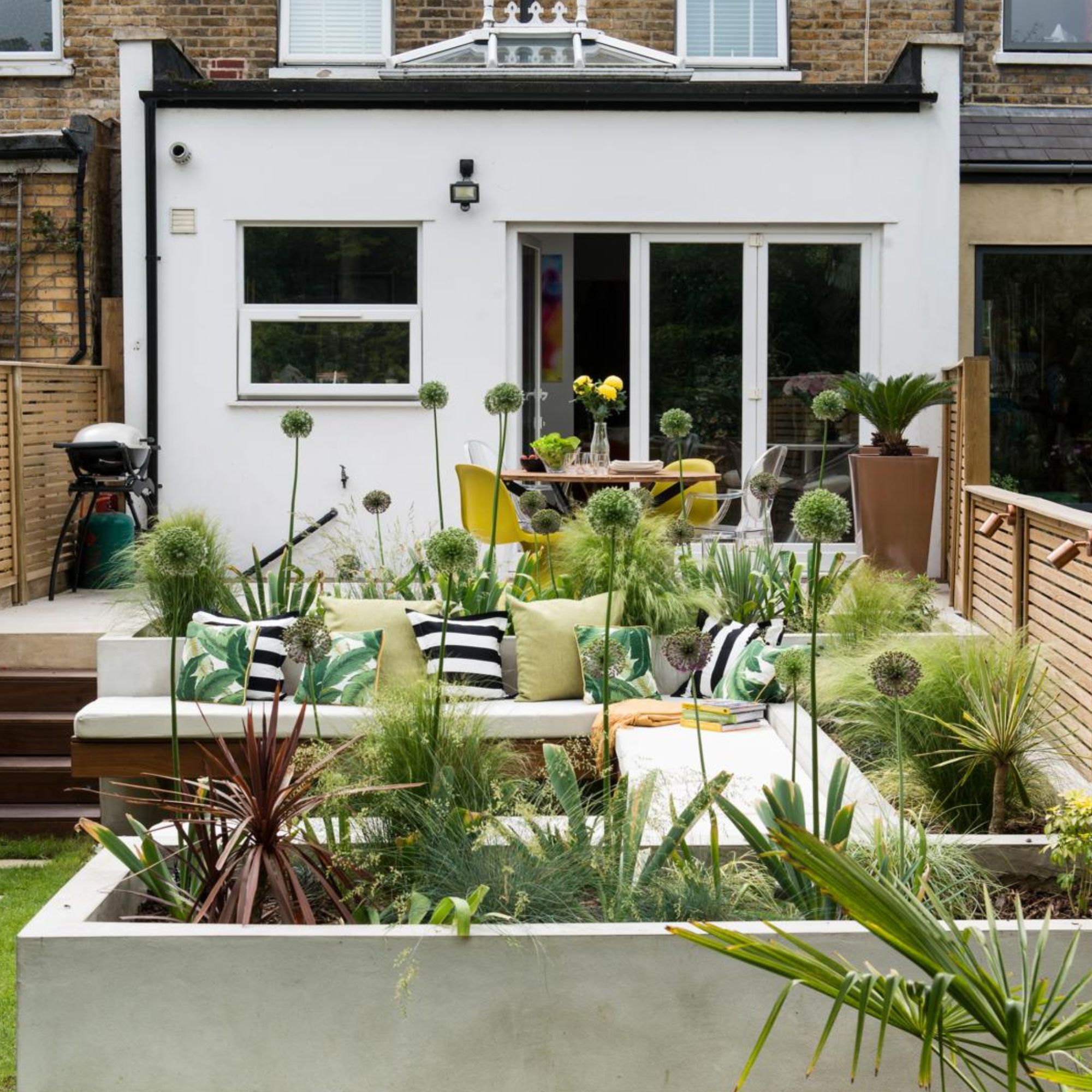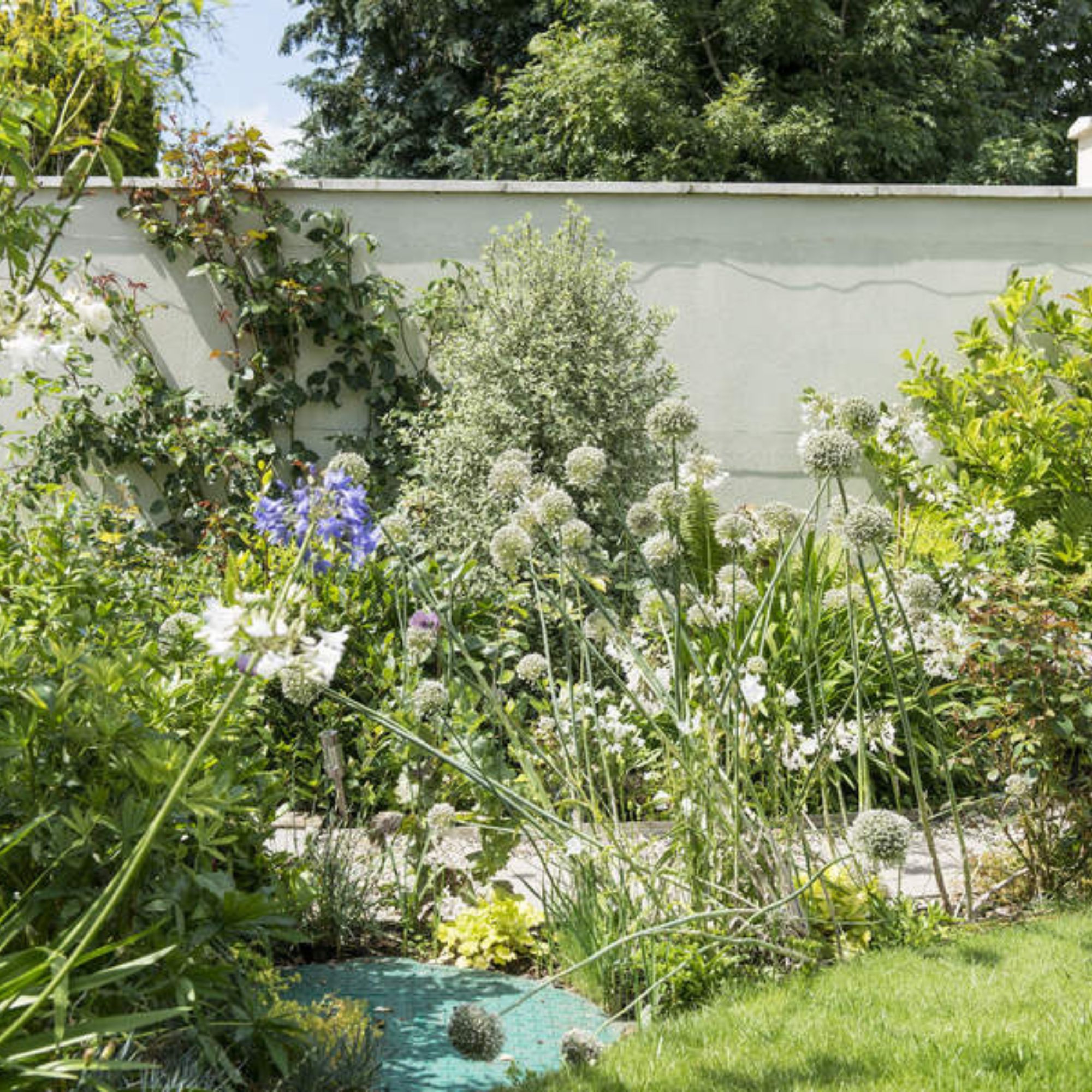
Low maintenance yet high in visual impact alliums look striking in any garden. The tall, structural flowers enjoy full sun and well-drained soil. Their large floating globes bloom in various shades of purple and white and most commonly flower during the months of May through to June.
Alliums are a perennial plant which means they return each summer. So, as one season's flowers fade should you deadhead alliums to ensure they return even bigger and better next year?
We've asked our favourite horticultural experts to let us in on the secret - should you deadhead alliums? And, here's what they said...
Should you deadhead alliums?
We asked as many green-fingered experts we could find -should you deadhead alliums?
Unfortunately, it seems the deadheading process isn't that straightforward as the answer was mixed.
Garden Designer, Elizabeth Waddington prefers to leave allium seed heads in the ground as they start to dry and seed. 'Like many other gardeners, I find the faded flowers on Alliums extremely ornamental and attractive in their own right, giving a far more long-lasting display than the flowers themselves,' Elizabeth explains.
Hortocultralist and TV broadcaster, David Domoney agrees. 'I leave them in my borders because I quite like their magnificent shape. It was purple but now it's that beautiful corn colour.'
While alliums look just as beautiful dried and left to seed, other garden experts, such as Sarah Raven prefer to take them out.
'By August I personally don't like seeing the seed pods in the garden because it makes it feel rather autumnal. I want it to still be full of beautiful colour,' explains Sarah Raven. "
Unlike deadheading roses, removing allium's spent blooms offers no benefit to the plant's health. But if you are rooting for 'Team Sarah'. Here's how to deadhead alliums.

How to deadhead alliums
If like Sarah Raven you feel allium seed heads are dulling your colourful flowerbeds, here's how to deadhead alliums after they have finished flowering their beautiful balls of purple and white petals.
What you'll need
- A clean and sharp pair of secateurs
- A container to collect allium seed heads and stems
- Somewhere to store dried allium seed heads if you want to use them for decoration
How to harvest allium seed heads
Knowing how to deadhead alliums is super easy. Simply cut each seed head and cane out as close to the plant's base as possible.
'There are various ways to do it,' says David Domoney. 'You can cut them [at the base] but I usually just give them a pull and they come straight out. You take it out in its entirety.'
You can also deadhead before the allium head has gone to seed.
'Just make sure that you do not remove any of the foliage before this has naturally started to die back, as doing so can weaken the plant,' says Elizabeth Waddington.

FAQs
When should I deadhead alliums?
Alliums are from the onion family and have a leafy shrub that returns year after year. Bulbs planted in September through to November will flower from May to August.
If you choose to deadhead alliums pull them in late August just as the globes begin to turn to seed. This is also a good time to tidy the foliage.
'If you want to minimise seedlings, you can remove the heads before the seeds ripen,' explains Sarah Raven. 'As with all bulbs, it is best to leave the foliage to die back naturally so that the bulbs store as much energy as possible for the following year. However, in the case of alliums, if the foliage is really tatty and brown when they are in flower, there is no harm in removing it.'
What to do with allium heads after flowering?
Seed head alliums make incredible dried flower statements indoors displayed in glass and ceramic vases. Or, why not be inspired by David Domoney?
'The secret is to put it into a sheltered position in the garage or back of the greenhouse. I usually hang them upside down and tie them all together because although I had a magnificent flower during the summertime, and I've had these lovely heads to enjoy during late summer it also makes a really good Christmas decoration,' David Domoney says on his blog.
Hang them from Christmas trees, use them as giant baubles in Christmas bauble display ideas or spray them gold and silver to show off in vases.







